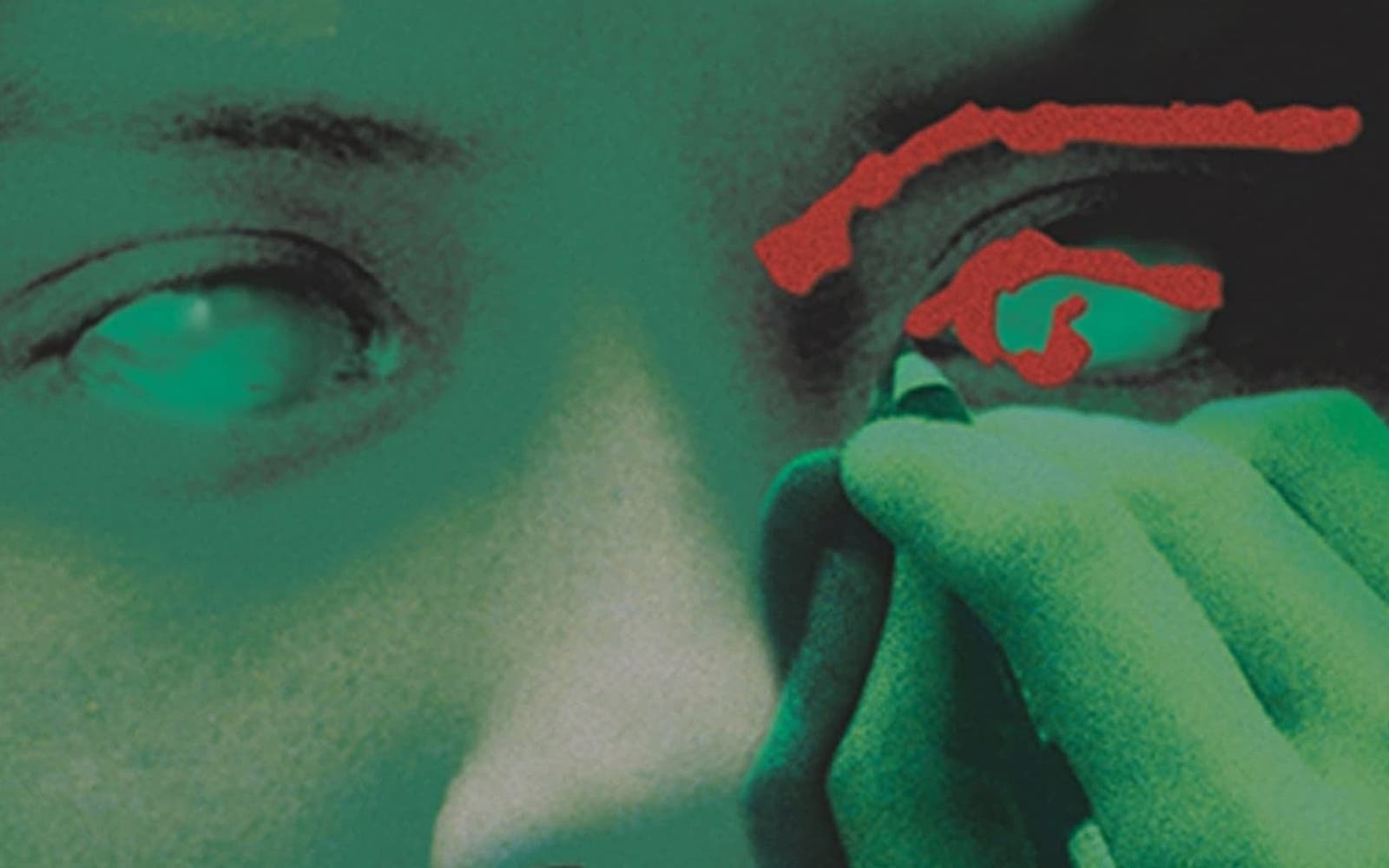The Eye by Oxide Pang, Danny Pang (Review)

The first time I watched The Eye, it didn’t really do a whole lot for me. Sure, the Pang Brothers had style and panache to spare, and the film certainly had its share of spooky moments. But the story, that of a blind woman who regains her sight after an operation and begins seeing terrifying visions, felt way too familiar to another movie starring dead people. With her therapist’s help, she seeks to understand what’s going on, eventually learning about the woman from whom she received her eyes. Similarities to The Sixth Sense are pretty obvious, but seeing it a second time revealed a lot that I missed before and really strengthened my opinion of the film.
Angela Lee’s performance as Mun, the woman tortured with these visions, is first-rate and really anchors the film. Her portrayal of a woman coming to terms with sight is striking and very touching. I think what I like best about it is her naivete. Because of her blindness, she has no idea what things look like. Therefore, when she sees stuff that would scare the bejeezers out of normal people, she reacts with curiosity, assuming this is just one more thing to get used to as a seeing person. But when she is scared, her trembling hands and wide-eyed look are a little too eerie for comfort.
There’s a greater feeling of tragedy and sorrow running throughout The Eye than The Sixth Sense (itself a fairly somber film). This becomes very clear as we learn more about Ling, the tortured young woman who stands at the center of everything. As the audience and Mun begin to understand Ling’s cursed life, especially her troubled childhood, it grows very sobering without ever seeming manipulative or forced.
As with Bangkok Dangerous (the Pang’s previous film), what really distinguishes The Eye is its style. The film’s stunning cinematography, editing, and direction, combined with outstanding effects, ensure that it always remains riveting.
The visual effects are great — especially during Mun’s many frightening visions, such as when she wakes up to find her bedroom slowly morphing into someone else’s — but what really got me the second time around was the movie’s sound. Since Mun has been blind most of her life, she’s lived in a world dominated by sound, and the directors work this angle to the hilt. Every subtle noise, be it a footstep, a door swooshing open, or air rushing through a vent, could very well mean something very ominous.
These all combine to create a film that manages to stand on its own merit, rather than get written off as a Sixth Sense knock-off (unless you want to get really nitpicky). The Pangs know how to create loads of atmosphere, and there are some genuinely creepy sequences (you won’t look at elevators the same way, I guarantee). Once again, the duo prove themselves capable of taking what should be an unoriginal story and injecting it with fresh life and an unexpected twist or two. Enough so that successive viewings still yield something new and interesting.
